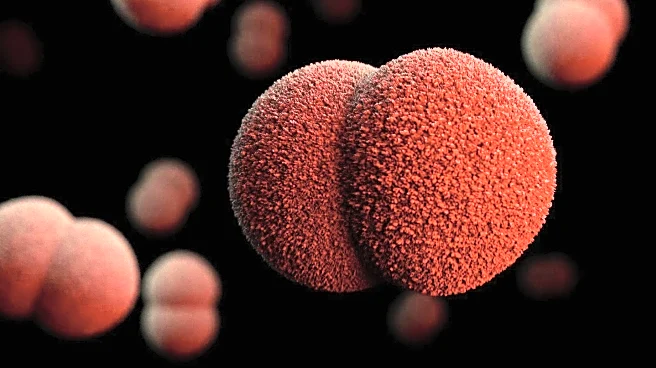What's Happening?
A study published in Nature explores the use of lactic acid bacteria (LAB) to combat biofilms formed by Staphylococcus aureus strains involved in acute mastitis. Mastitis, a painful condition affecting
breastfeeding women, is often treated with antibiotics, but resistance in S. aureus complicates treatment. The research highlights the effectiveness of LAB strains in reducing the viability and adherence of S. aureus cells within biofilms. LAB cultures and their cell-free supernatants (CFS) were shown to modify biofilm composition, increasing LAB presence while displacing S. aureus, offering a promising alternative to traditional antibiotics.
Why It's Important?
The increasing resistance of S. aureus to antibiotics poses a significant challenge in treating mastitis, which can impact breastfeeding and maternal health. The use of LAB as probiotics offers a natural and potentially effective solution, reducing reliance on antibiotics and supporting the WHO's breastfeeding recommendations. LAB's ability to disrupt biofilms and promote a balanced microbiota in the mammary gland could lead to improved mastitis management and prevention, benefiting both mothers and infants.
Beyond the Headlines
The study suggests that LAB-derived CFS could be used as postbiotics, offering antimicrobial benefits without relying on bacterial viability. This approach simplifies storage and administration, although challenges remain in ensuring the efficacy of CFS through the digestive tract. Further research is needed to identify the bioactive compounds responsible for LAB's antimicrobial activity and to explore their potential in clinical settings.









